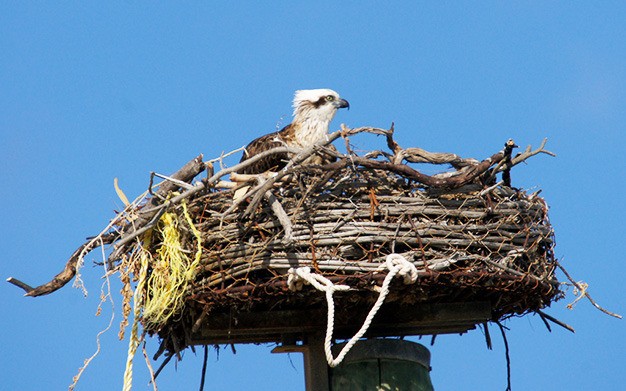For about a decade, two ospreys have nested in Mercer Island on a light pole at Islander Stadium. Like clockwork, the urban raptors return near the beginning of April to lay eggs.
This year, with the help of licensed arborist Tom Otto of Canopy Conservation, the ospreys will have a new, permanent nest in a tall tree close to the nest they had on the light pole over the stands and concession area at Islander Stadium.
“With the help of Tom Otto, we are relocating the nest to a neighboring tree. We will remove the tip of the tree and put their nest on top to create the right environment for the birds in a place they will find it,” said Mercer Island School District Director of Maintenance and Operations Tony Kuhn.
Otto has worked closely with the Washington Department of Fish & Wildlife relocating other nests. The move is scheduled for mid-February.
Ospreys like tall, isolated areas for their nests. The new location will eliminate the risk of debris falling on Islander fans.“Ospreys are large and messy birds. They typically don’t defecate in their nest and their nests can weigh a couple hundred pounds, meaning there is a great amount of debris associated with their presence,” said Kuhn. “The new permanent location will minimize the hazards from falling debris and damage to the surrounding surfaces from feces.”
Ospreys can have a wingspan of up to six feet. These particular ospreys spend their winters in South America and their summers in Mercer Island. Ospreys are often referred to as “sea hawks” in the Puget Sound.


